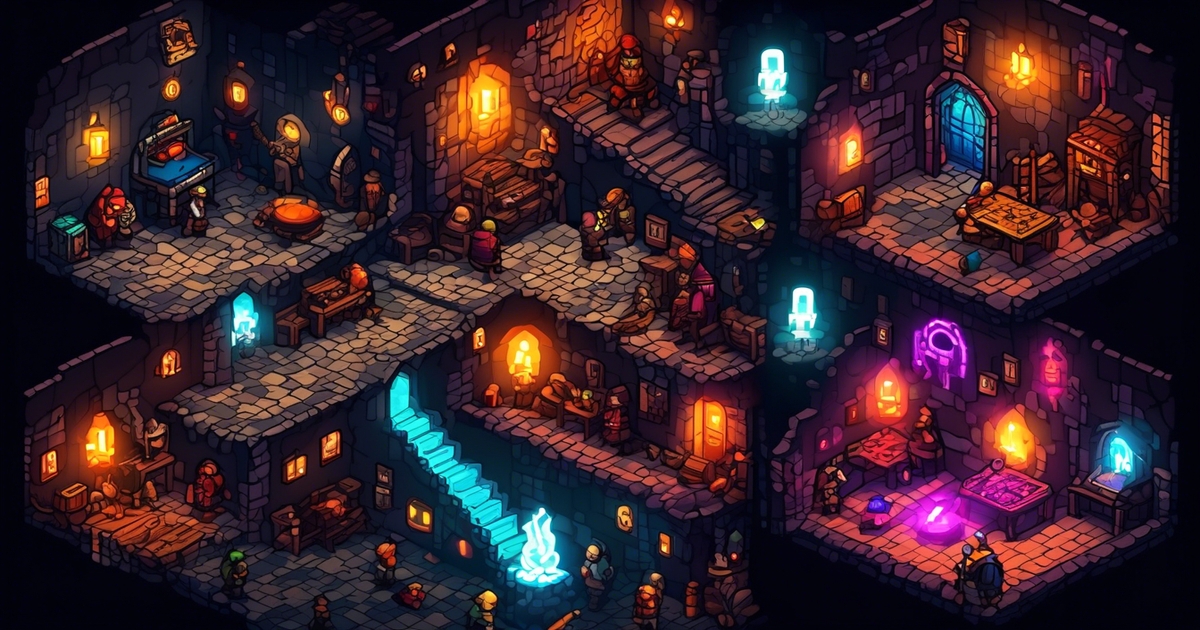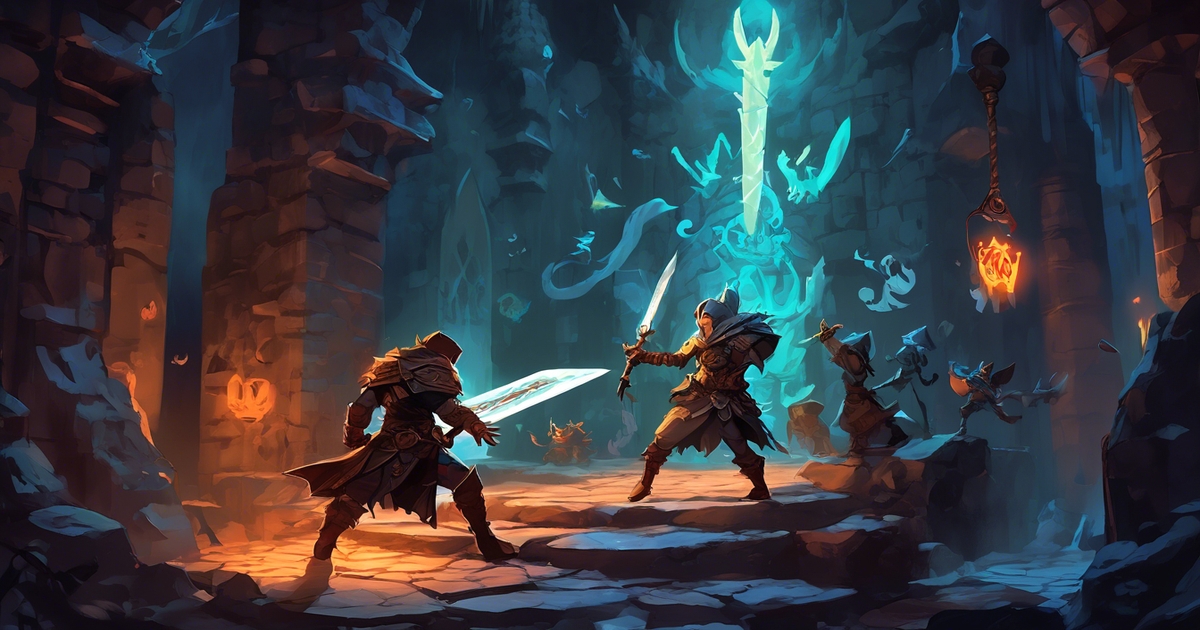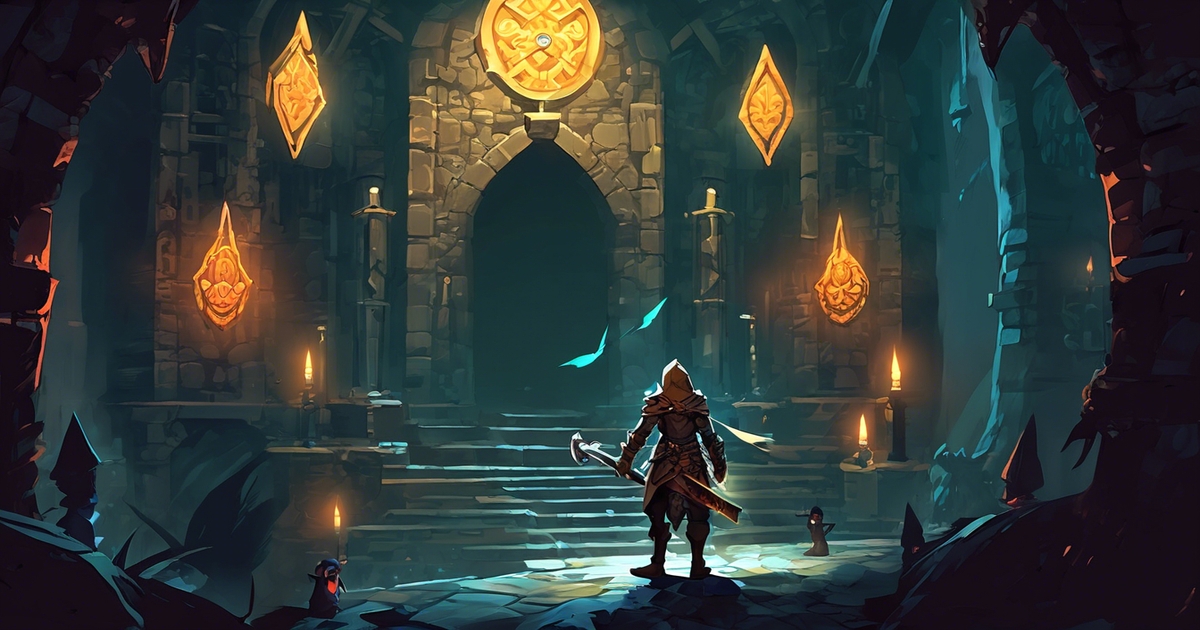What Does Roguelike Mean in Gaming: Exploring Origins & Features

- Origin and Evolution of Roguelike Games
- Key Features of Roguelike Games
- Different Variants and Growth of Roguelike Games
- Understanding Rogue-lites and Procedural Death Labyrinths
- Significance of Mystery Dungeon Games in the Genre
- Community Engagement in Roguelike Gaming
- Target Audience for Roguelike Games
- Final Remarks
- Frequently Asked Questions
Unraveling the enigma of “roguelike” in gaming requires a deep dive into its distinctive characteristics and gameplay mechanics. From procedurally generated levels to permanent death, these elements shape the essence of roguelike games.
Delve into this blog post to uncover what truly defines a roguelike game and how it sets itself apart in the realm of gaming experiences.
Origin and Evolution of Roguelike Games

Definition in Gaming
Roguelike games refer to a genre characterized by procedurally generated levels, turn-based gameplay, and permanent death for characters.
These games draw inspiration from the 1980 game “Rogue,” which introduced players to dungeons filled with monsters, treasures, and challenges. Over time, roguelikes have evolved beyond their simple graphics and ASCII art roots.
Core Features
The turn-based gameplay in roguelikes allows players to carefully plan their moves without feeling rushed. This strategic element adds depth to the gaming experience.
Another defining feature is the inclusion of permadeath, where once a character dies in-game, they cannot be revived or continue playing. This aspect raises the stakes for players as they navigate through unpredictable environments.
Key Features of Roguelike Games

Procedurally Generated Levels
Roguelike games often have procedurally generated levels. This means that each time a player starts a new game, the layout of the dungeon changes. For example, in one playthrough, a room might contain powerful enemies, while in another, it could be filled with valuable items.
Players never experience the same dungeon twice due to this feature. The randomness keeps the gameplay fresh and exciting as they navigate through ever-changing environments looking for loot and challenges.
Turn-Based Combat System
Turn-based combat system is prevalent in roguelike games. This means that players take turns making decisions during battles instead of everything happening simultaneously. For instance, players may strategize their moves carefully before engaging in combat to maximize their chances of survival.
This feature adds a layer of strategy to the gameplay as players must think critically about their actions and anticipate enemy movements. It also allows for more thoughtful decision-making rather than relying on quick reflexes alone.
Different Variants and Growth of Roguelike Games
Traditional vs. Modern
Traditional roguelikes stick to the roots of the genre, featuring turn-based gameplay and grid-based movement. In contrast, modern adaptations often incorporate real-time action elements.
Graphical Roguelikes The emergence of graphical roguelikes has brought a visual appeal to the genre, making it more accessible to a wider audience. Titles like “The Binding of Isaac” and “Dead Cells” are prime examples.
Increased Popularity
Indie developers have played a significant role in the increased popularity of roguelike games. With lower budgets and smaller teams, indie studios can experiment with unique gameplay mechanics that resonate with players.
Understanding Rogue-lites and Procedural Death Labyrinths
Forgiving Gameplay
Roguelike games, particularly Rogue-lites, are known for their forgiving gameplay compared to traditional roguelikes. In these games, players often retain some progress or upgrades even after dying, making the overall experience less punishing.
Players can explore various levels and face different challenges without having to start completely from scratch each time they perish. This feature encourages gamers to keep playing and try new strategies without the fear of losing all their progress.
Emphasis on Replayability
Procedural death labyrinths focus on creating unique game experiences through random level generation. Each playthrough offers a fresh set of challenges, ensuring that no two gaming sessions are alike.
The randomness in level design and enemy encounters keeps players engaged and excited as they never know what to expect next. This emphasis on replayability adds depth to the gameplay experience, making every session feel new and thrilling.
Significance of Mystery Dungeon Games in the Genre
Unique Mechanics
Mystery dungeon games bring a fresh take on roguelike gameplay, blending dungeon exploration with RPG elements. Players navigate through procedurally generated dungeons, encountering challenges and treasures along the way.
These games offer a unique experience each time you play, as the layout of dungeons changes with every new adventure. For example, in “Pokémon Mystery Dungeon,” players explore randomly generated dungeons filled with wild Pokémon and traps.
Popularization by Titles
Titles like “Pokémon Mystery Dungeon” have played a significant role in popularizing this genre. By combining beloved franchises like Pokémon with roguelike mechanics, these games introduce a wider audience to the thrill of mystery dungeon games.
Community Engagement in Roguelike Gaming
Active Modding
Roguelike games have a vibrant community that creates custom content. Players can modify the game to enhance their playing experience. For instance, fans of a popular roguelike may create new characters or levels.
Players often share these mods on online forums dedicated to specific roguelike titles. These platforms serve as hubs for strategy sharing and discussions about gameplay mechanics and challenges faced in different games.
Annual Events
The community’s passion for roguelikes is evident through events like the “Roguelike Celebration.” This gathering brings together players, developers, and enthusiasts to celebrate the genre. Participants discuss their favorite games, share experiences, and even get sneak peeks into upcoming releases.
Target Audience for Roguelike Games
Challenging Experiences
Roguelike games are perfect for players who enjoy a tough challenge. These games test your skills and wit, making every decision crucial. The thrill of facing unpredictable situations keeps players engaged.
Strategy and Tactics Enthusiasts
For fans of strategy and tactics genres, roguelike games offer a unique experience. Planning each move carefully is vital to survival in these intense gameplay scenarios. It’s like playing chess but with higher stakes.
Niche Gaming Enthusiasts
Dedicated players find solace in the world of roguelikes as it caters to their specific tastes. These games provide an alternative to mainstream titles, attracting those seeking something different from the usual offerings.
Final Remarks
Roguelike games have a rich history and diverse gameplay elements that continue to captivate a wide audience. From their humble beginnings to the modern iterations, these games offer a unique blend of challenge and excitement. Understanding the nuances between roguelikes and rogue-lites is crucial for enthusiasts seeking immersive gaming experiences. The community surrounding these games plays a vital role in shaping their future, fostering a dynamic environment for innovation and exploration. As the genre evolves, exploring different variants and engaging with fellow players can enhance one’s appreciation for the intricacies of roguelike gaming.
For those intrigued by the world of roguelike games, delving deeper into their mechanics and discovering new titles can provide hours of entertainment. Embracing the spirit of permadeath and procedural generation opens up a realm of possibilities for thrilling gameplay experiences. Join the conversation, share insights, and embark on new roguelike adventures to fully immerse yourself in this captivating gaming landscape.
Frequently Asked Questions
What is the origin of Roguelike games?
Roguelike games originated in the early 1980s, inspired by a game called “Rogue.” These games are characterized by procedurally generated levels, permadeath mechanics, and turn-based gameplay.
What are the key features of Roguelike games?
Key features of Roguelike games include procedural generation of levels, permanent death (permadeath), grid-based movement, and often high difficulty levels that require strategic thinking and resource management.
How do Rogue-lites differ from traditional Roguelike games?
Rogue-lites share some characteristics with Roguelikes but tend to have more forgiving gameplay elements such as persistent progression between runs or randomized upgrades. They offer a less punishing experience compared to traditional Roguelikes.
Why are Mystery Dungeon Games significant in the roguelike genre?
Mystery Dungeon Games hold significance in the roguelike genre due to their unique blend of roguelike mechanics with popular franchises like Pokémon. These games introduce diverse gameplay elements while maintaining core roguelike features like randomization and permadeath.
Who is the target audience for Roguelike games?
The target audience for Roguelike games typically includes players who enjoy challenging gameplay experiences that require strategy, patience, and adaptability. Fans of dungeon-crawling adventures and those seeking replay value through procedural generation often find these games appealing.
